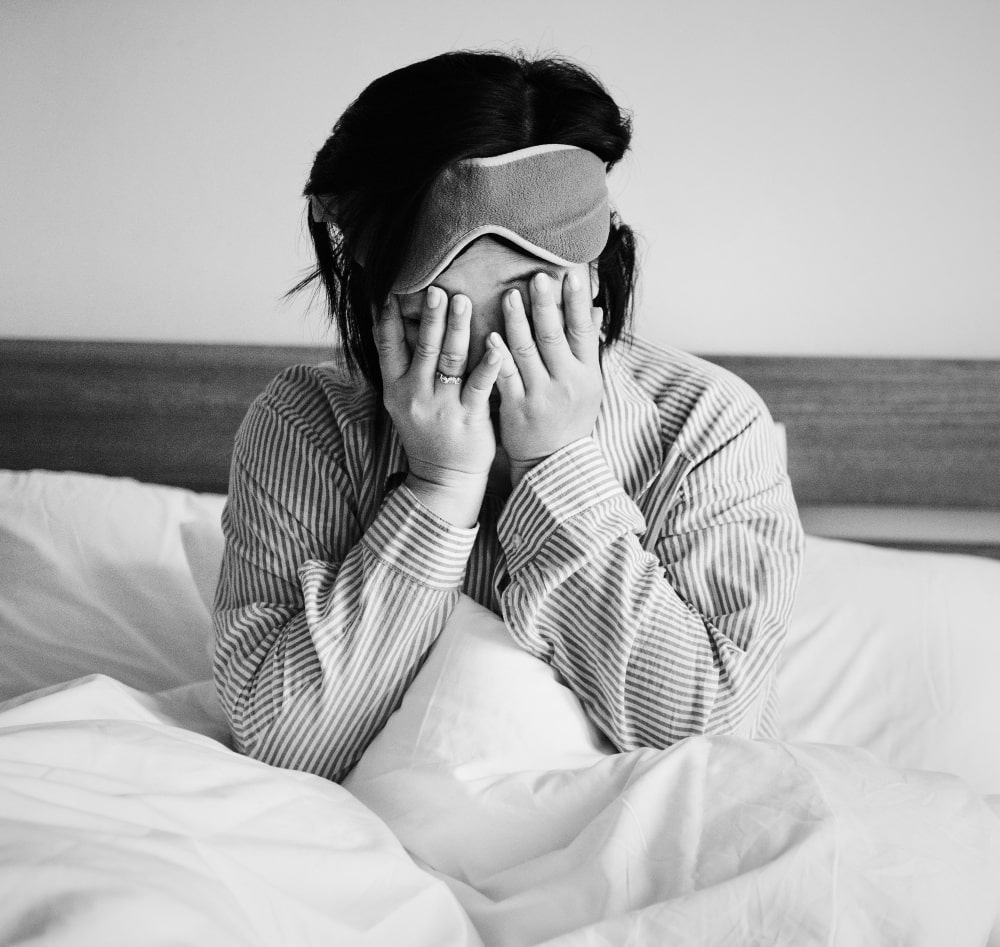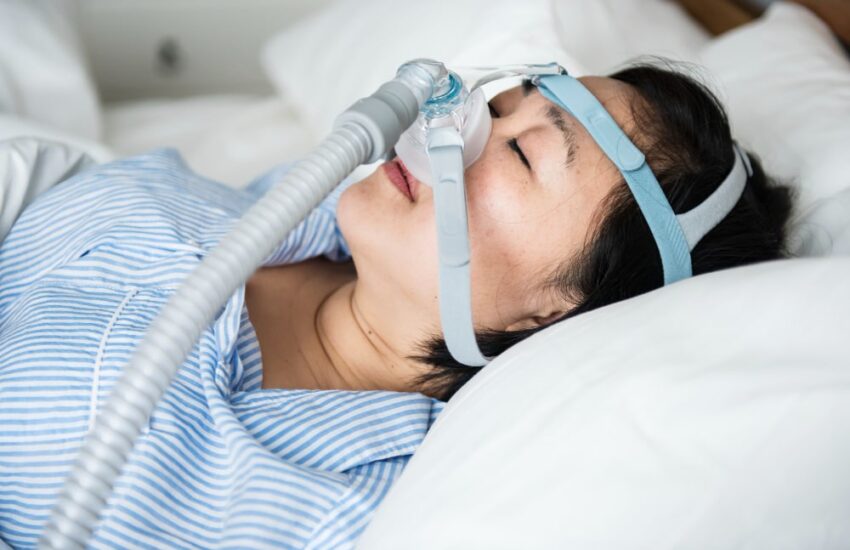Obstructive Sleep Apnea (OSA) is a serious sleep disorder that occurs when you repeatedly stop breathing during the night. These pauses in your breathing cut off the oxygen supply to your brain for a short period of time, interrupting your sleep.
Obstructive sleep apnea occurs when the muscles in your throat relax too much during sleep, narrowing or blocking your airway. It usually causes snoring and interrupted breathing.
Obstructive sleep apnea treatment can help improve your condition if you’re dealing with sleep apnea. These home remedies are designed to help you improve your sleeping habits and reduce or prevent breathing disruptions during sleep.
1. Oral Appliances
Oral appliances, which a dentist or dental sleep specialist often fits, are another option to treat obstructive sleep apnea. They work by pushing the jaw and tongue forward, expanding the airway, and promoting breathing during sleep.
They are usually used as a first-line sleep apnea treatment in Beverly, MA, for moderate to mild obstructive sleep apnea and for patients who do not respond well to CPAP therapy or who have had unsuccessful treatment with other means. Depending on the patient’s needs and preferences, these devices may include a mandibular advancement device (MAD) or a tongue-retaining appliance.
Some people might experience soreness in the jaw, teeth, or gums when they start using an oral appliance. This is normal and goes away after a few nights of wearing the device.
The long-term effects of an oral appliance for sleep apnea are still being studied, but they have a good track record of success and low risks of adverse effects. In fact, the majority of obstructive sleep apnea patients who receive an oral appliance report improved sleep quality and reduced snoring and daytime sleepiness.
Oral appliances are a cost-effective, convenient, and effective way to manage mild to a moderate obstructive sleep disorder. They are available in several brands, and your orofacial specialist will help you find the right one for your needs.
2. Lifestyle Changes
If you have mild obstructive sleep apnea, lifestyle changes may be able to help you deal with your symptoms. These include getting plenty of exercises, avoiding alcohol and medications such as anti-anxiety drugs or sleeping pills that can worsen your condition, and maintaining a healthy weight.
Obesity is a known risk factor for sleep apnea, and losing weight may improve your symptoms. In addition, regular exercise and weight loss can benefit your heart, improve your overall health, and help you get a better night’s sleep.
The American Academy of Sleep Medicine recommends getting 150 minutes of moderate activity per week. You can do this by walking or doing other aerobic exercises, including strength training. Another lifestyle change that can help you deal with obstructive sleep apnea is avoiding smoking. Smoking can cause your throat to relax and can cause an obstruction in your airway.
Your sleep apnea doctor in Beverly, MA, can also remove larger structures in your throat, such as your tonsils and adenoids, which can open up your airway. This obstructive sleep apnea treatment is called uvulopalatopharyngoplasty (UPPP).
The underlying reason for most obstructive sleep apnea cases is a blockage in the airway that causes breathing to stop and repeatedly start during the night. This blockage can be in the back of the throat near your tonsils and adenoids or anywhere else in the airway.
3. Behavioral Therapy
Behavioral therapy can help you manage the effects of your sleep disorder. It can also address the underlying emotional issues that may be contributing to your sleep problems.
Cognitive-behavioral therapy (CBT) is one of the most effective types of behavioral therapy for sleep disorders. It focuses on improving relaxation skills, addressing the ways in which your thoughts keep you from sleeping well, and adjusting lifestyle habits that negatively impact your sleep.
In CBT, you work with a therapist to learn more about how your thought patterns influence your emotions and behavior. The therapist helps you identify unhealthy thinking patterns and then works with you to replace them with healthier ones.
Systematic desensitization is another form of behavioral therapy that uses the principles of classical conditioning to reduce phobias and fears. It works by gradually increasing a person’s exposure to the stimulus that triggers their anxiety or phobia so that they no longer anticipate a negative response when that stimulus is encountered.
In addition, aversion therapy is another type of behavioral therapy that uses aversive techniques to make a person less likely to engage in certain behaviors. For example, if a person is afraid of driving, the therapist can add a bitter-tasting substance to the air in their vehicle.
4. Combination Therapy
Combination Therapy is when you take several drugs at once to treat a specific disease. This type of sleep apnea treatment can have many advantages, including lowering your drug doses, minimizing side effects, and preventing the bacteria that cause the disease from developing resistance.
There are a few types of combination therapies, including an oral appliance for sleep apnea, behavioral therapy, and surgery. Your doctor may recommend one or more of these methods if your obstructive sleep apnea is moderate to severe and other treatments have failed.
Other types of combination therapy include upper airway stimulation and jaw surgery (maxillomandibular advancement). This surgery enlarges the space behind your tongue and soft palate, so it is less likely to block your airway.
A new type of device called a hypoglossal nerve stimulator can also help reduce obstructive sleep apnea symptoms. This device detects your breathing patterns and stimulates a nerve that controls the movement of the tongue.
5. Adjusting Sleeping Habits
Adjusting your sleeping habits may be the most effective way to help deal with obstructive sleep apnea. This includes avoiding certain habits that can cause your sleep to be disrupted, such as smoking and eating heavy meals close to bedtime.

Try to switch positions if you have a habit of lying on your back while asleep. This helps keep the tongue and soft palate from resting against the back of your throat, which narrows the airway. Also, avoid snoring. This can help reduce the number of apnea episodes and improve your sleep quality.
Chiropractors can also help address subluxations and misalignments that contribute to obstructive sleep apnea. Using spinal manipulation and soft tissue massage, chiropractors can help correct the position of the bones in your body and promote proper breathing.
6. Addressing Underlying Medical Conditions
Obstructive sleep apnea is a serious condition that can put you at risk for major health problems. It increases your risk for heart disease, high blood pressure, stroke, and even death.
Obstructive sleep apnea occurs when part or all of your airway becomes blocked during sleep, and you repeatedly stop breathing while you are asleep. This causes pauses in your breathing and may lead to loud gasps, snorts, and body jerks during the night.
Your obstructive sleep apnea can be caused by things that block your airway, such as obesity, nasal congestion, nasal polyps, and narrowed tonsils or adenoids. Medications, including certain anti-anxiety and narcotic medicines, can also cause obstructive sleep apnea.
If you have obstructive sleep apnea, treatment can help you get better sleep. It can also reduce your daytime drowsiness, which lowers your risk for work-related accidents and can improve your health.
If you have an obstructive sleep disorder, talk to your doctor about what is the best sleep apnea treatment for you. Many treatments for obstructive sleep disorder include positive airway pressure (PAP) devices, oral appliances, and lifestyle changes.
Conclusion
Part or all of your upper airway is blocked when you have obstructive sleep apnea. This can cause you to stop breathing for 10 seconds or more. The condition also causes a decrease in the flow of oxygen to your lungs and heart, which can lead to heart failure or other health problems.
It can be difficult to diagnose obstructive sleep apnea on your own. You may not notice the symptoms of this sleep disorder until someone else, like your partner, notices them. If you have obstructive sleep apnea, it is important to seek sleep apnea treatment in Beverly, MA, to prevent these symptoms from becoming more severe.
The best way to find out if you have obstructive sleep apnea is to get tested by your doctor or a sleep specialist. Your doctor will use a device to watch you breathe and record your sleep. Your doctor may also ask you to keep a sleep diary for two weeks.
Other ways to identify obstructive sleep apnea include asking your sleep apnea doctor in Beverly, MA, for a referral to a specialist or taking a questionnaire about your sleep habits. If your apnea symptoms are severe, your doctor may recommend a sleep study or surgery to treat the disorder.
AUTHOR BIO
Dr. Benjamin Polan, the most trusted sleep apnea doctor in Beverly, MA, has been helping patients at the Exceptional Sleep and TMJ clinic. He has over 38 years of experience in general and cosmetic dentistry and sleep apnea treatment in Beverly, MA. He currently resides on the northern shores of Massachusetts and loves spending time with his family, along with his Tibetan Terriers.
